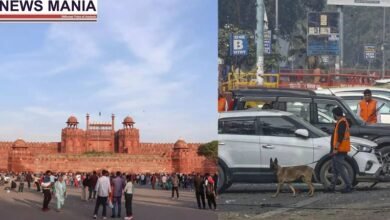Last Trams Standing: Residents Of Kolkata Are Fighting Hard To Keep Them Operating

Following in his father’s footsteps, Jagannath Shah left Bihar in 1985 at the age of 20 to work as a tram conductor in Kolkata. At that time, there were 200–300 trams in the city of pleasure, weaving among bustling markets and hurried shoppers. Only 10 trams are running today.
The struggle to conserve the final trams in India is currently taking place in Kolkata, and this is where Shah finds hope. A diverse mix of individuals, including tramway staff, policy experts, college students, and filmmakers, have gathered for the purpose. They organize public demonstrations, social media campaigns, and word-of-mouth campaigns among tram enthusiasts. And although while some have started to question trams’ viability in the modern day, many people in Kolkata, who have played a significant role in daily life for many decades, care about their legacy.
Refuses to give up without a fight
Debashish Bhattacharya, a scientist of 66 years old, is one such tram aficionado who struggles to accept the fact that Kolkata’s trams are in danger of being extinct. Bhattacharya was fascinated by double-decker buses and trams as a child. Although faster, more economical electric buses have replaced slower, double-decker buses throughout the years, people’s attention is slowly drifting away from trams.
Trams, which have two compact but distinct compartments and can hold 61 people, are an integral element of Kolkata’s ancient culture. During the British administration, trams were also in use in Chennai, Mumbai, Delhi, and Kanpur, but only Kolkata, the first Asian city to install an electric tram in 1902, has managed to maintain them over the years. They would crisscross the city, becoming Kolkata’s lifeblood, and their compartments would be renovated with ceiling fans and later air conditioning.
However, the tram service is currently deteriorating.
Tram World is different from the real world.
Although the state administration accepts the issue of vanished trams, it claims that considering international transportation concepts that can’t always be replicated in India is counterproductive.
However, the CTUA’s recent protests have focused on the reopening of old routes, much alone the creation of new ones by the government. The association protested on the streets in April and again in October of this year, calling for the reinstatement of the Esplanade-Kidderpore route, which had been discontinued when Cyclone Amphan struck the state in May 2020. To help the rails get clear so the route could be reopened, CTUA members trimmed the grass.
The West Bengal State Transport Corporation blames the ongoing Metro construction in central Kolkata for the reduction in tram routes.
News Mania Desk






